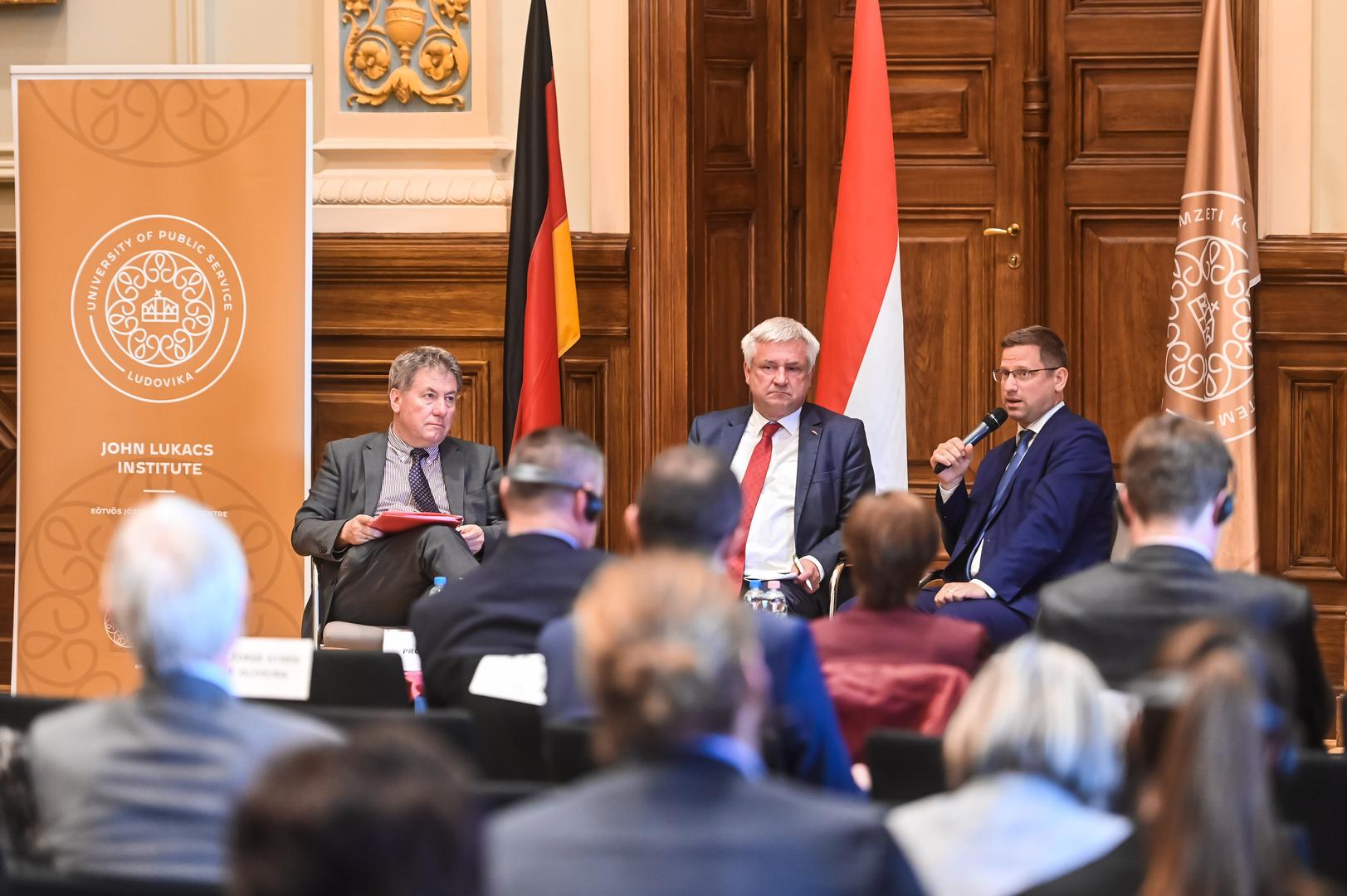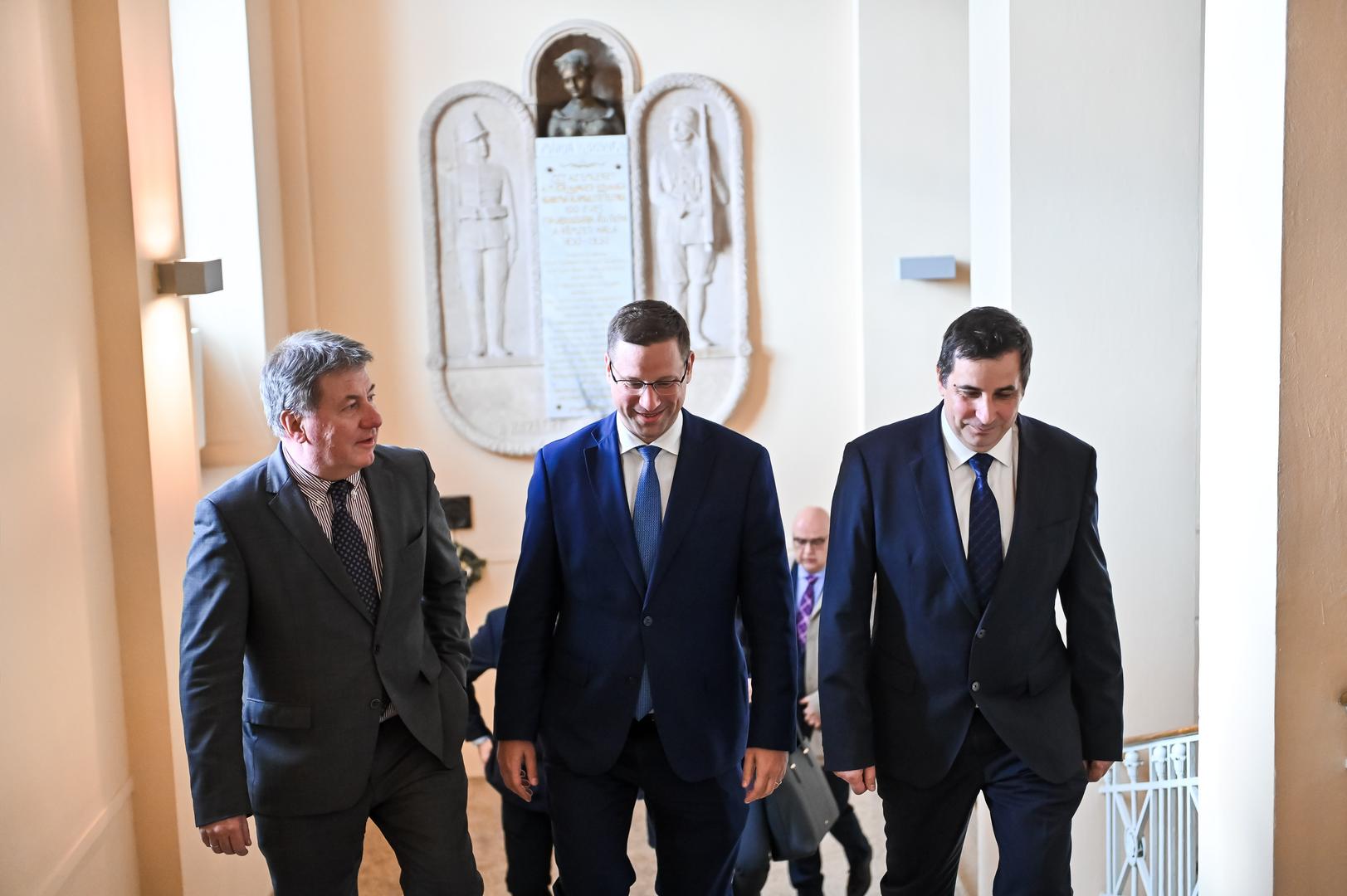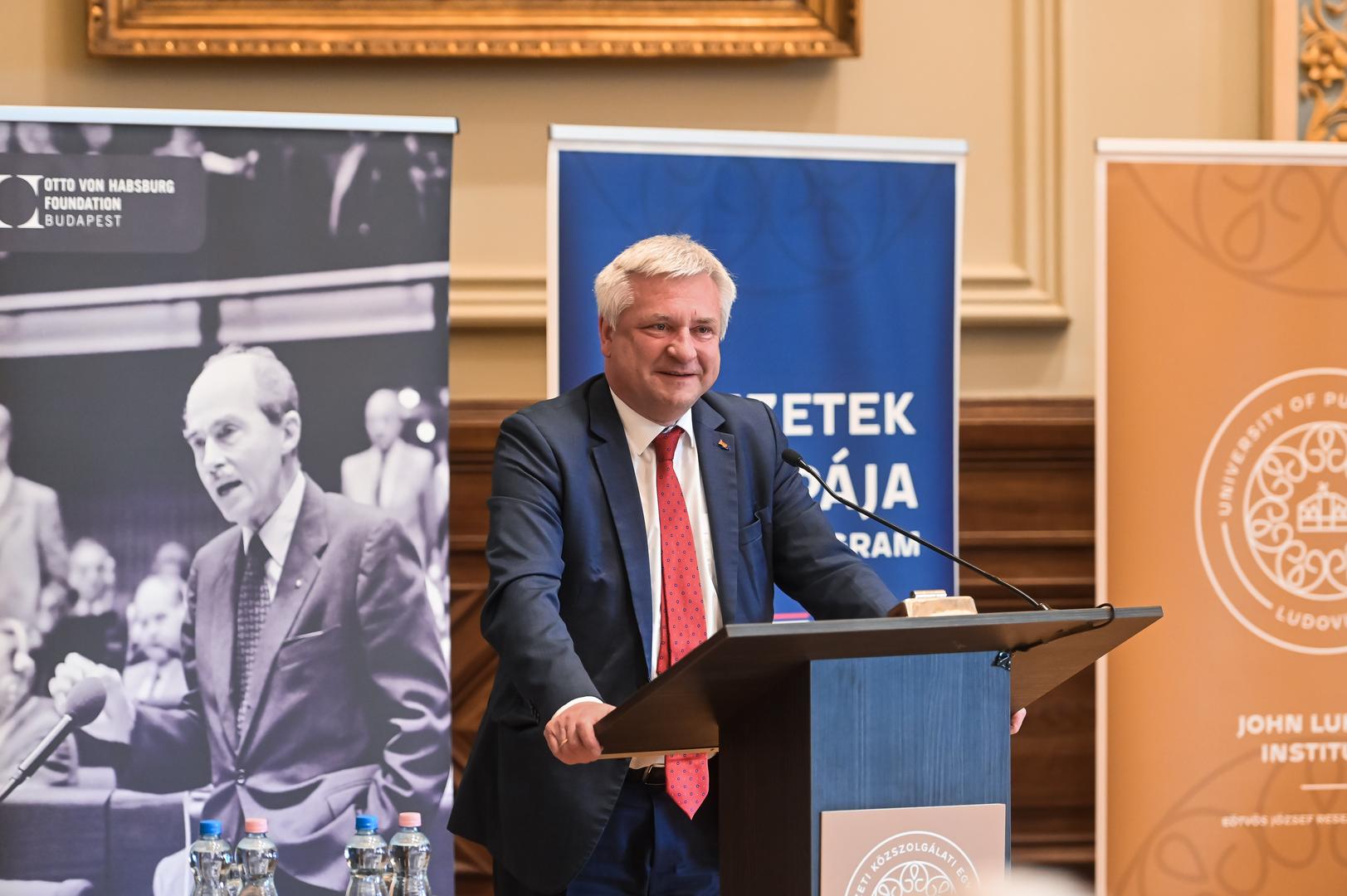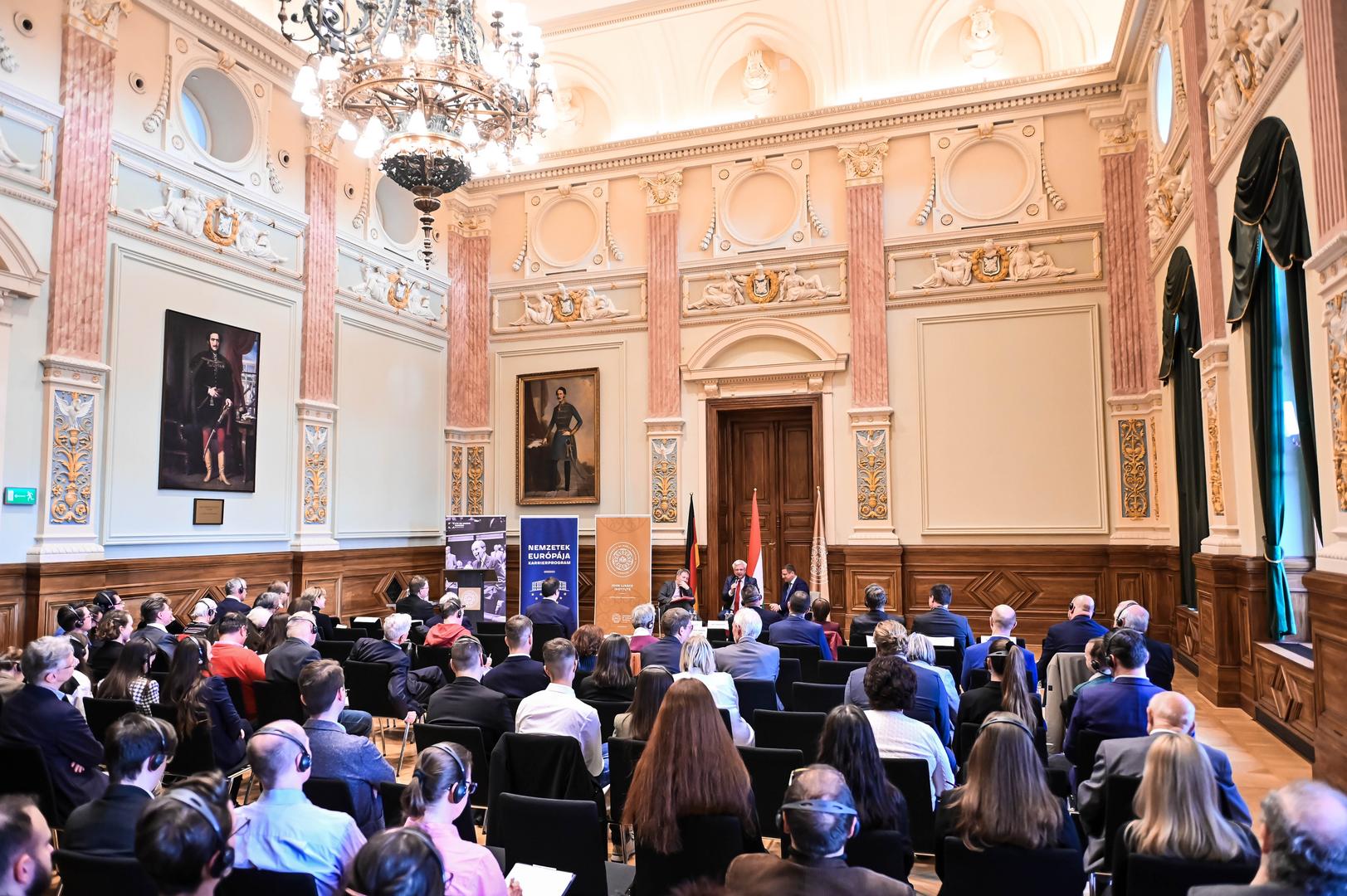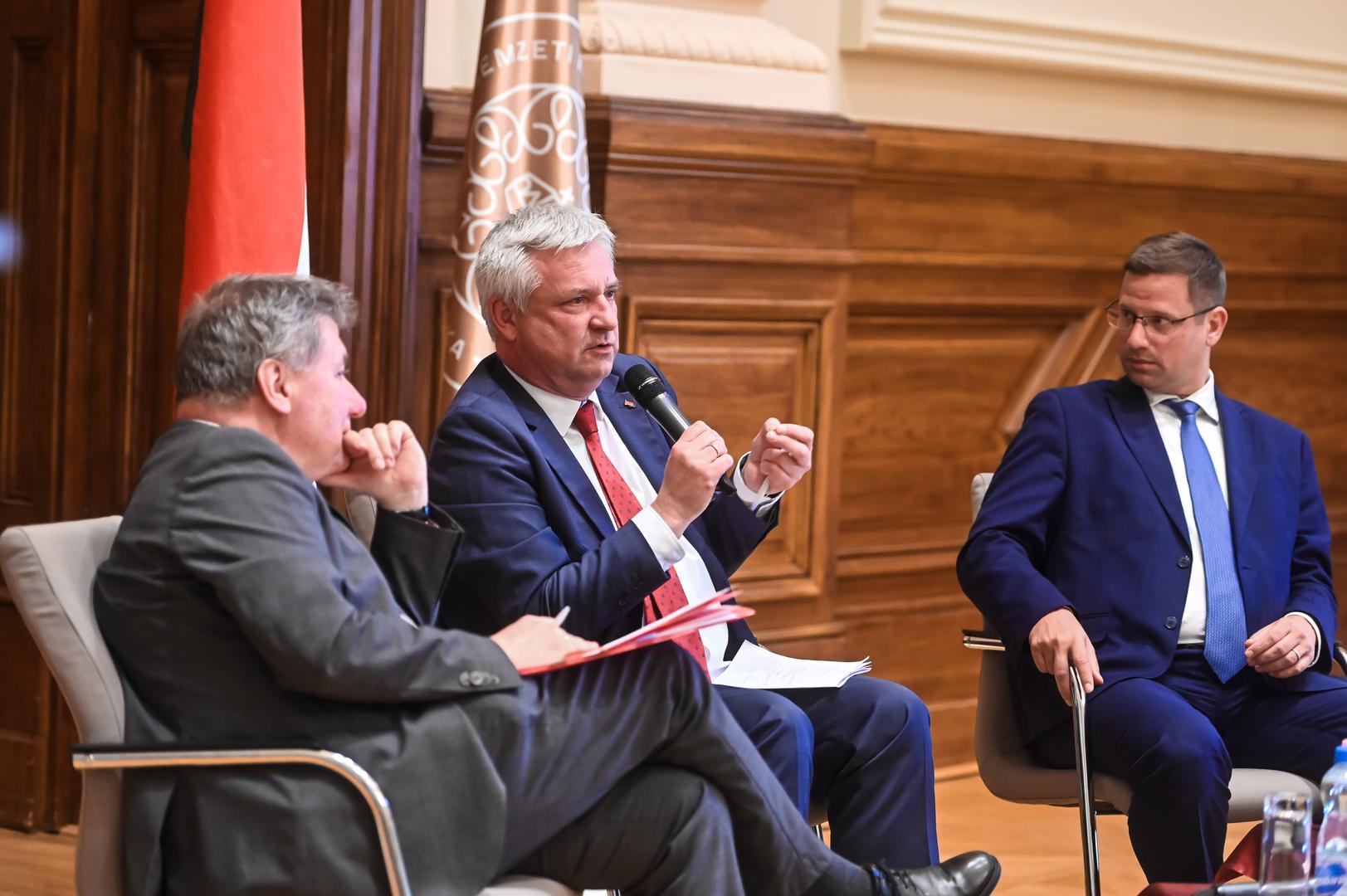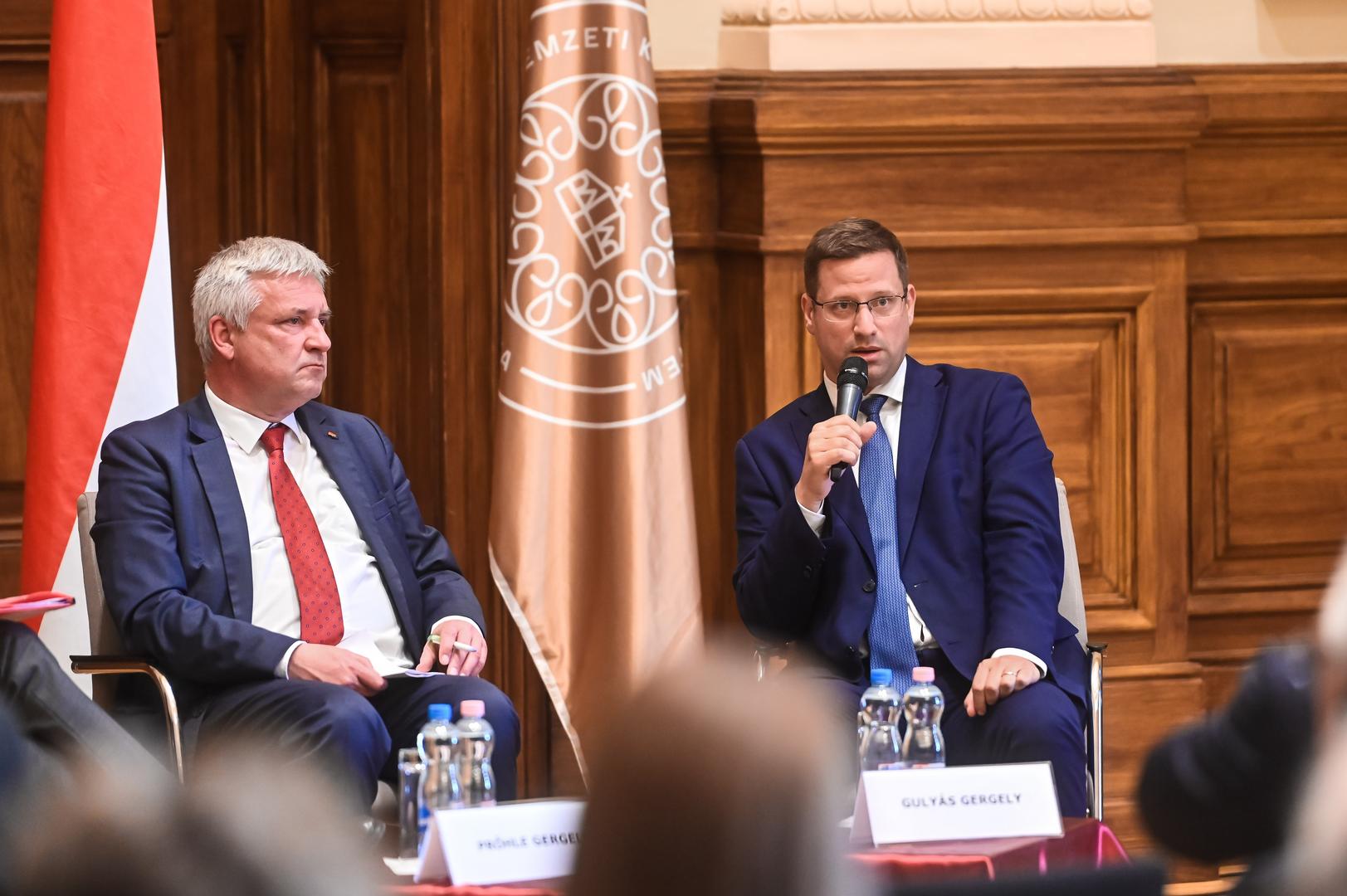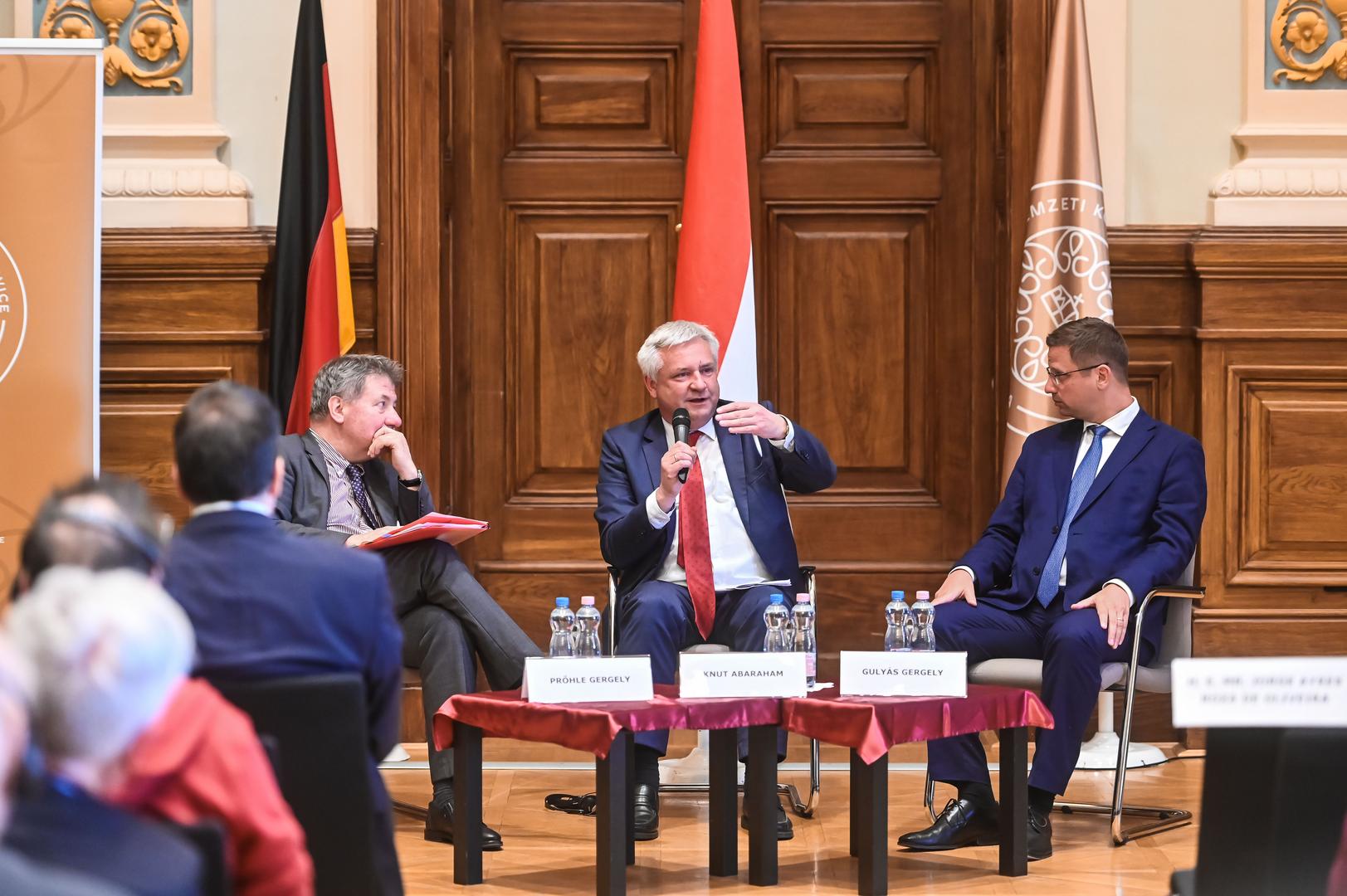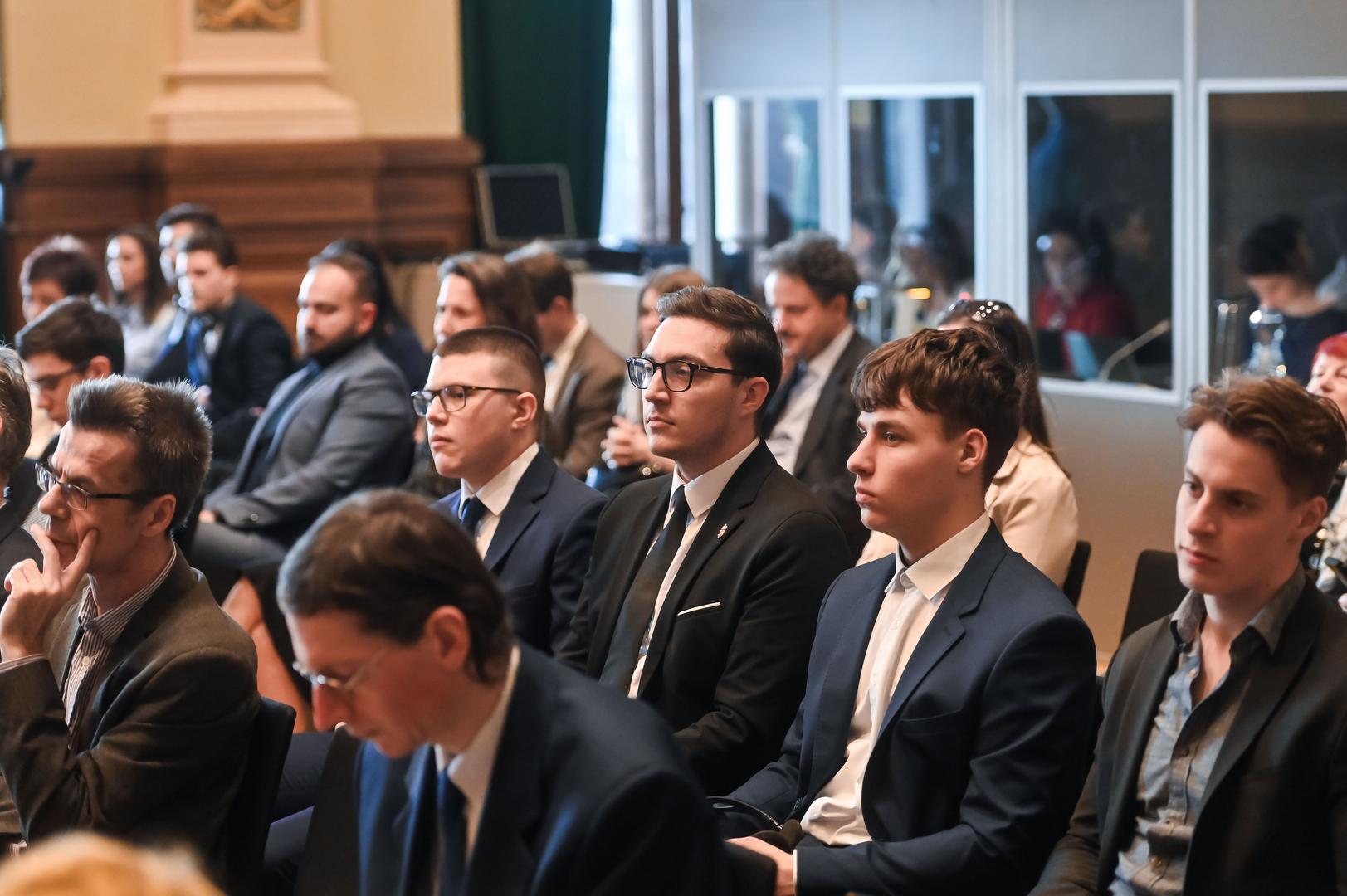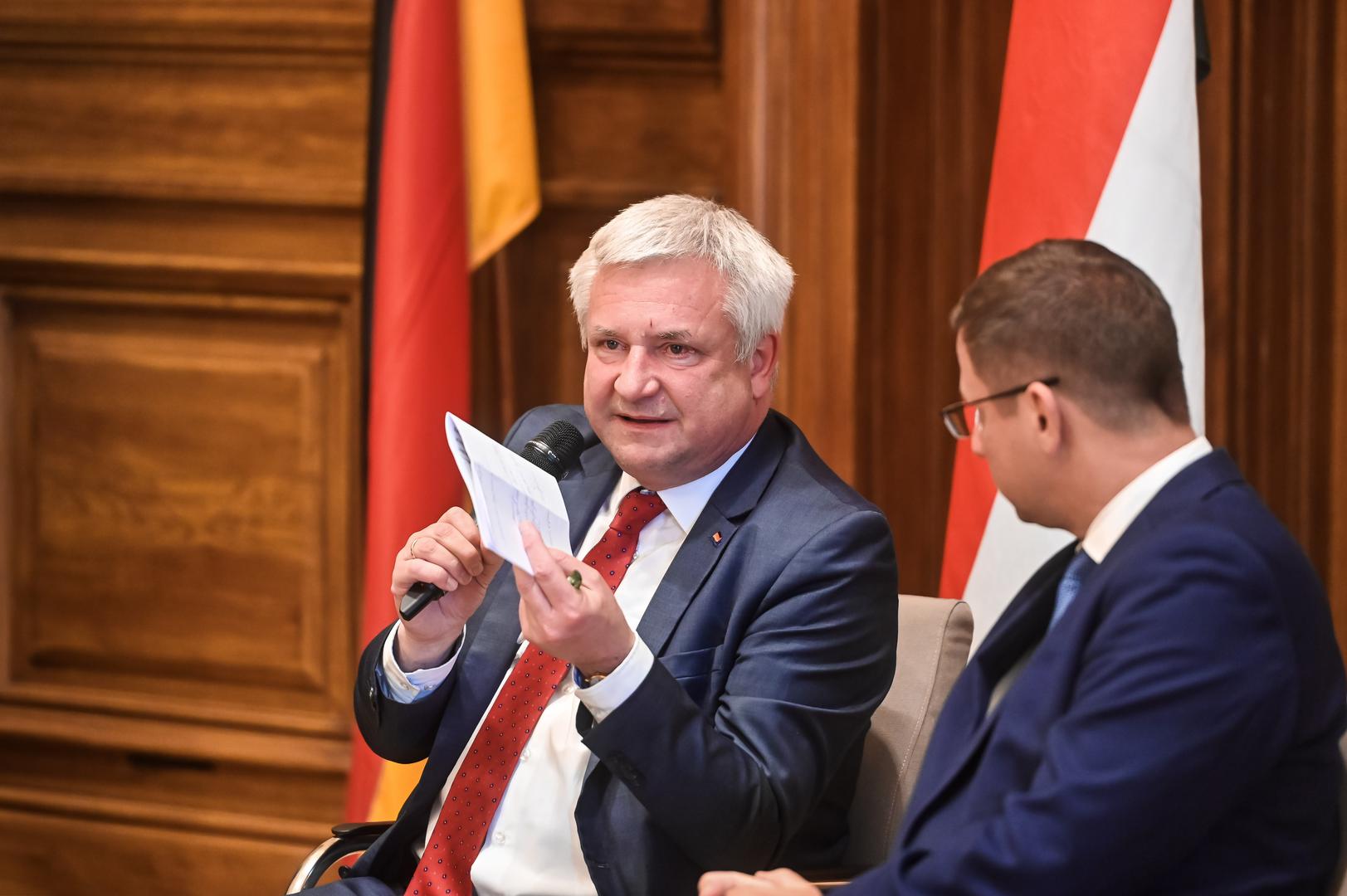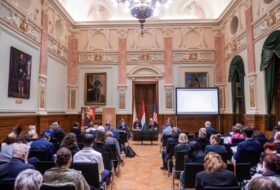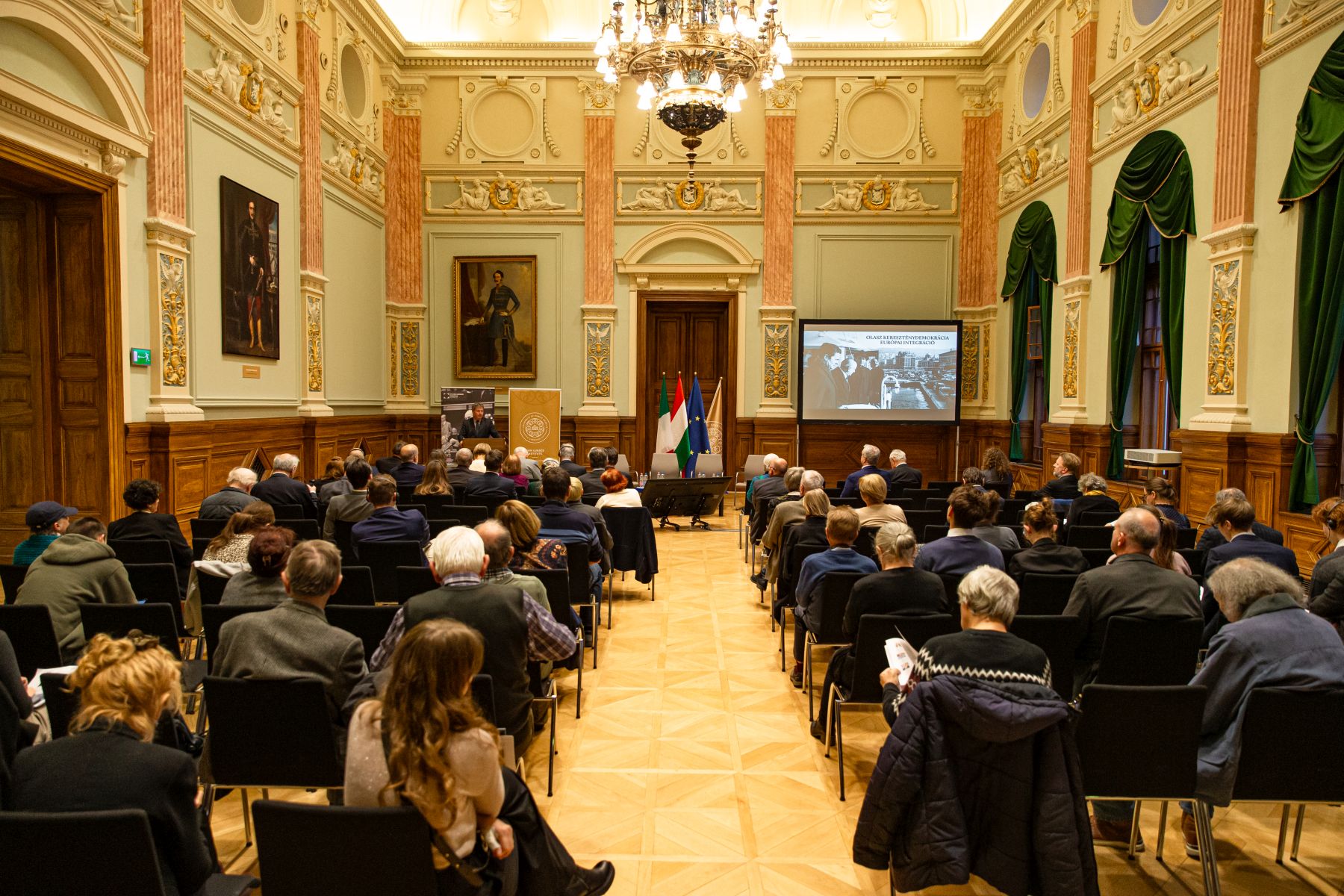The discussion on the lessons of the recent parliamentary elections in Germany was followed with great interest in the Széchenyi Ceremonial Hall of the University of Public Service. Welcoming the attending ambassadors of EU countries, Gergely Prőhle stressed that the significance of the event goes far beyond German borders, given Germany’s dominant role in the European Union and our region. In this spirit, he asked his guests to assess the outcome of the election and to formulate their expectations in the light of the current situation.
Knut Abraham spoke about a topical issue that is of most concern to public opinion in both countries: he argues that the AfD’s success is not due to the broad support for its consistent party program, but to the appeal of its rallying/protest character – together with the fact that the issues they effectively address (economy, migration, Russia-Ukraine war) resonate with a large part of German society. It is an old truth that it is impossible to please all segments of the voters: there have always been some who object to too much state involvement, others to too little. The real danger, Abraham believes, is that the Merz government he hopes will soon be in place will not be able to offer reassuring solutions to the problems – because that could lead to a crisis.
A solution could be the planned €800 billion in state borrowing, much of it for infrastructure and less for the military – although politicians still have to explain to the bourgeois electorate why such indebtedness is necessary, in defiance of the “Swabian housewife” mentality. The CDU politician called it one of the most pressing chapters in coalition talks with the SPD, which could lead to a grand coalition by Easter if they reach an agreement.
Looking back on the relations of the past years, Gergely Gulyás said that the Hungarian government considers illegal migration, the issue of the basic wage (Bürgergeld) and the different perception of the values ensuring social cohesion as the most sensitive issues in German domestic politics. The Minister criticised the behaviour of German diplomats, especially in the last three years, and the tone of their statements concerning Hungary. He expressed the hope that, despite our departure from the European People’s Party, Hungarian diplomats and representatives in Brussels would be able to find common ground more easily with the new German leadership. He also hopes that Germany will have a stable government that will not be reluctant in the future to assume the role of a continental leader that international actors rightly expect for it to do.
In his response to Gergely Gulyás’s remarks, Knut Abraham identified the establishment of peace in society as the most important task of the incoming government: but this must take into account the country’s constitution, German law, EU regulations, and the needs and expectations of society – all while avoiding the pitfalls of unjustified actionism and excessive tolerance.
Moving on to foreign policy, Gergely Prőhle asked about Germany’s triple dependence, with the United States in security policy, Russia in energy supply and China in the economic field, which seems to be unavoidable in the short term. Having experienced the direction of the new US foreign policy, both politicians called the urgent definition of the basic principles of a common European strategy crucial, which – knowing the consistent Hungarian position of recent years – could even bring about a turnaround in the currently rather strained relations between Brussels and Budapest. Both Knut Abraham and Gergely Gulyás agree that the new style of negotiation that has taken hold in the White House since Donald Trump took office will not make planning any easier – the crucial test will certainly be the face-to-face meeting between the next German Chancellor and the US President.
Photos by Dénes Szilágyi
